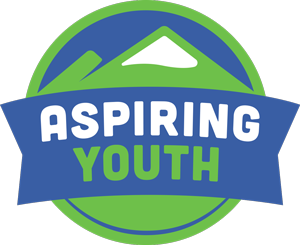 Understanding autism throughout the country
Understanding autism throughout the country
It’s no secret that autism spectrum disorder is increasing in prevalence, especially in the United States. There is no race, region, or social class exempt from the impacts of autism. This is clearly demonstrated in the 2013 documentary The United States of Autism, whose host and director, Richard Everts, travels across the country and interviews 20 families who have been affected by autism. The documentary is enlightening, and there are some important themes worth discussing.
Access to interventions
Access to providers differs, especially when the family and providers do not speak the same language. One family from Puerto Rico speaks Spanish, and they came to the contiguous United States so that their son would have more opportunities. Another family came all the way from Japan. Leaving their homes and their support systems behind for a less familiar place, these families are trying to navigate a complex system in a place that has a foreign culture and foreign language—just so their children can find growth.
Other families indicated that they’ve moved to metropolitan areas to access providers. Financing therapies and interventions is also a factor, as one family from Oklahoma explained, where they are fighting for Nick’s Law to pass so insurance companies would be required to pay for services.
Siblings
The interviews highlighting siblings’ perspectives were particularly interesting to me personally since I do have a sibling who is on the spectrum. A few parents expressed concern regarding the attention that was given to the child with autism—resulting in less attention for the  typically developing children. When the children were interviewed though, they often did not express that point of view. Rather than feelings of resentment, their answers reflected compassion with “It makes him who he is,” or “She’s better at some things than I am, and I’m better at some things than her.”
typically developing children. When the children were interviewed though, they often did not express that point of view. Rather than feelings of resentment, their answers reflected compassion with “It makes him who he is,” or “She’s better at some things than I am, and I’m better at some things than her.”
In my house, aside from my mother and me, we don’t often discuss autism. When my 15-year-old brother saw “autism spectrum disorder” marked on a form for my 13-year-old brother, he asked, “Mom, why did you mark that? Tyler is just Tyler.”
I think in many families, this sentiment is shared.
Finding a cure vs. teaching acceptance
The film portrays the cycle that many families go through: wishing for a cure for the poor communication and dysregulation when a child is younger, but as the child grows up, developing a greater appreciation for their quirks. One mother reported “It was a tragedy—that was my initial thought. But now, I see it as a gift.” One set of parents indicated that they desperately wished they could cure their child.
But many felt differently, claiming that autism has made their child who he or she is. From my work with families, this is pretty typical, though it may not be true for all.
 One really important perspective expressed in the film is, of course, that of those with autism. One teen said, “Don’t try to cure autism; learn from it and about it.” Another stated, “I believe in the idea of neurodiversity,” compared to finding a cure.
One really important perspective expressed in the film is, of course, that of those with autism. One teen said, “Don’t try to cure autism; learn from it and about it.” Another stated, “I believe in the idea of neurodiversity,” compared to finding a cure.
Regarding the effects of vaccines, at least a handful of families reported strong convictions regarding their role on their child’s development. To date, vaccines or mercury contributing to autism is not clear, as countless studies have yet to find a significant link. However, I think many families may hold on to this correlation. We really don’t know the cause of autism. What’s arguably as or more important is finding effective treatments and interventions for those who are affected.
I encourage families and providers to view the documentary and think critically about some of the points brought up. Examine the similarities and differences you find among your family and others.
Remember that you are not alone in your feelings; they are being felt all across the United States.
Breea. M. Rosas, B.A., Ed. S. Candidate
Breea graduated from Central Washington University with a Bachelor of Arts in 2013. Her undergraduate major was Psychology, with a minor in Family Studies. She completed the coursework for an Educational Specialist degree in School Psychology in Spring 2015, with an anticipated graduation date of Spring 2016 upon the completion of an internship with the Franklin Pierce School District. Professionally, Breea has worked with Aspiring Youth as a lead facilitator for summer camp and served on the curriculum development team. Additionally, Breea has experience working with adults of varying abilities, including autism spectrum disorder, as well youth in the school setting.


Leave A Comment
You must be logged in to post a comment.